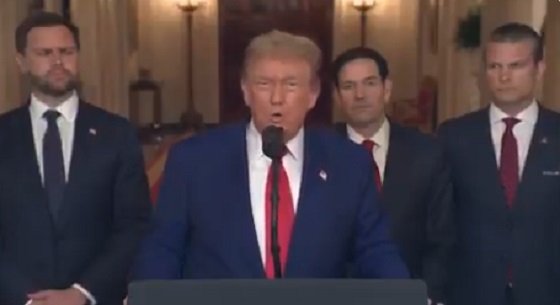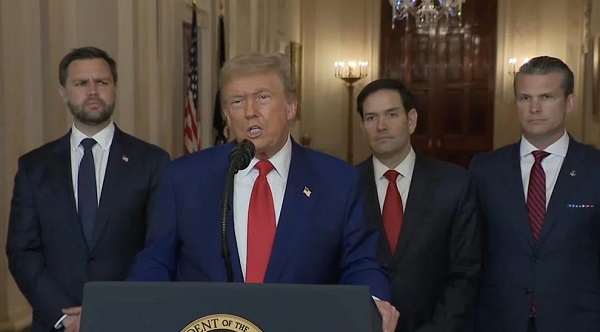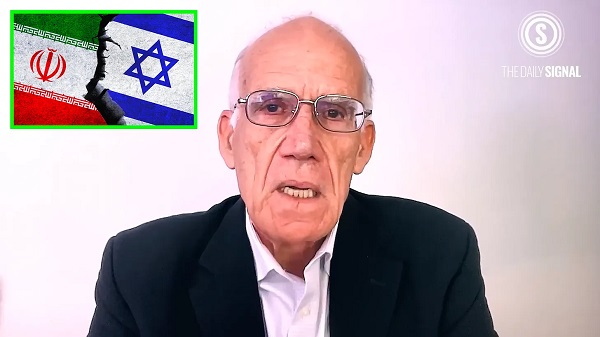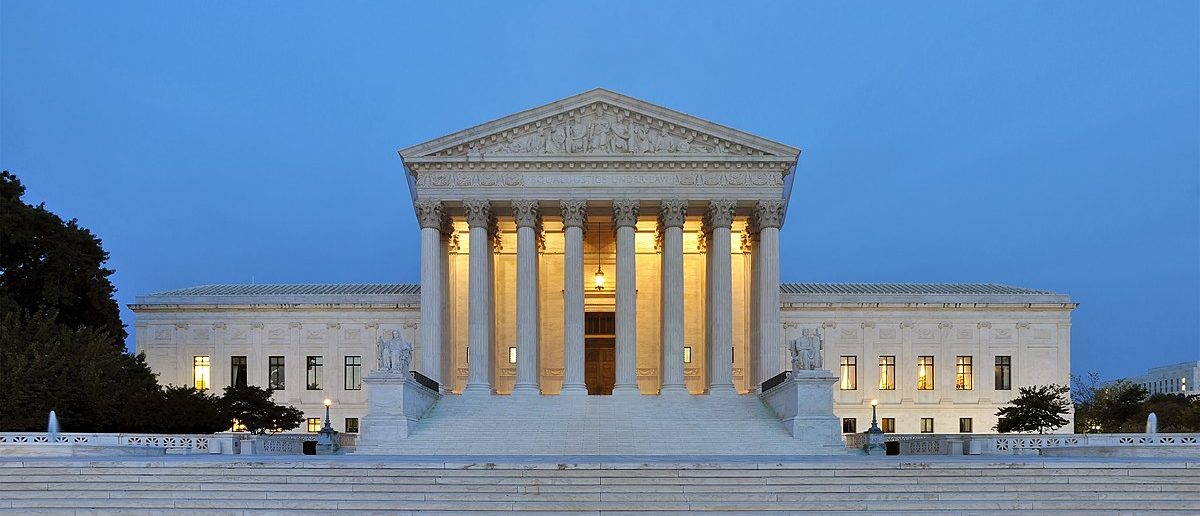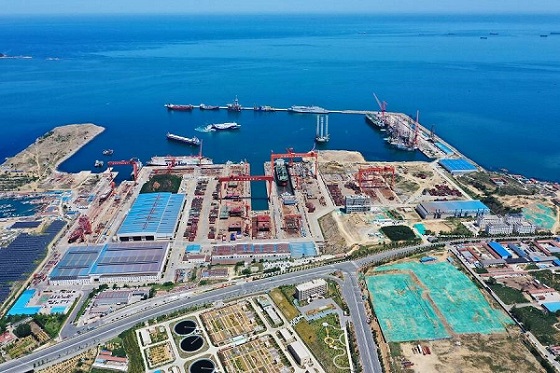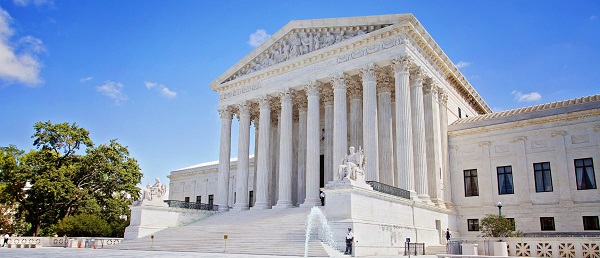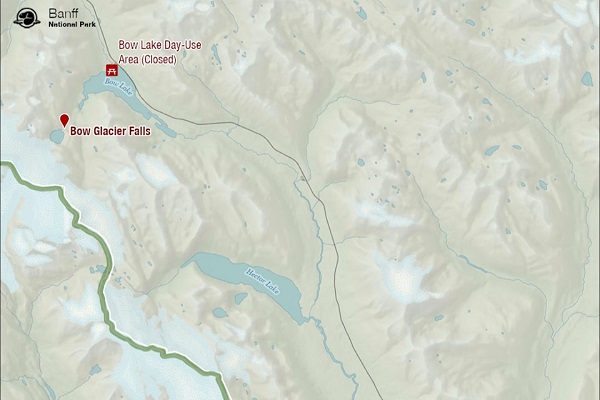From The Center Square
President Donald Trump addressed the nation late Saturday night at the White House following the U.S. military carrying out “successful” strikes on an Iranian nuclear facility while warning the Iranian regime if they don’t come to peace, the U.S. could target more sites.
The president, flanked by Vice President JD Vance, Secretary of State Marco Rubio and Defense Secretary Pete Hegseth, said the strikes were “carried out” with “massive precision” on the Islamic Republic’s three major nuclear facilities, including Fordow, Natanz and Esfahan. He touted the mission as a “spectacular military success.”
Trump said that the goal of the strike was to destroy the country’s “nuclear enrichment capacity and [put] a stop to the nuclear threat posed by the world’s number one state sponsor of terror.”
He proclaimed the nuclear sites as being destroyed, calling on Iran to make peace.
The president said that he hopes the U.S. military forces won’t be needed for future operations; however, he added that the Iranian regime can’t continue to target Israel and the U.S. He warned that it could get worse for Iran if they do not attempt to make peace.
“This cannot continue. There will be either peace or there will be tragedy for Iran far greater than we have witnessed over the last eight days. Remember, there are many targets left; tonight’s was the most difficult of them all, by far, and perhaps the most lethal. But if peace does not come quickly, we will go after those other targets with precision, speed and skill, most of them can be taken out in a matter of minutes,” Trump warned.
“Iran’s key nuclear enrichment facilities have been completely and totally obliterated. Iran, the bully of the Middle East, must now make peace,” said Trump.
He warned that if peace is not achieved, all bets are off, indicating future strikes are possible. He highlighted Iranian terror attacks against Americans, adding they have been responsible for the deaths of thousands of American lives.
“If they do not [achieve peace], future attacks will be far greater and a lot easier. For 40 years, Iran has been saying, ‘Death to America, Death to Israel.’ They have been killing our people, blowing off their arms, blowing off their legs, with roadside bombs. That was their specialty. We lost over 1,000 people and hundreds of thousands throughout the Middle East and around the world have died as a direct result of the hate,” the president said.
Trump congratulated Israeli Prime Minister Benjamin Netanyahu, adding that the two leaders had worked as a team.
“I want to thank and congratulate Prime Minister Bibi Netanyahu. We worked as a team like perhaps no team has ever worked before, and we’ve gone a long way to erasing this harmful threat to Israel,” said Trump.
Multiple reports indicated six B-2 stealth bombers based out of Whiteman Air Force Base in Missouri were used to carry out attacks on Fordow, while 30 tomahawk missiles were shot from nuclear subs.
The U.S. military strikes just over a week after Israel initially launched targeted strikes against the Islamic Republic after months of failed peace talks urging the Iranian regime to cease their development of nuclear weapons. The strikes mark the first time in history the U.S. has carried out military strikes inside Iran.
